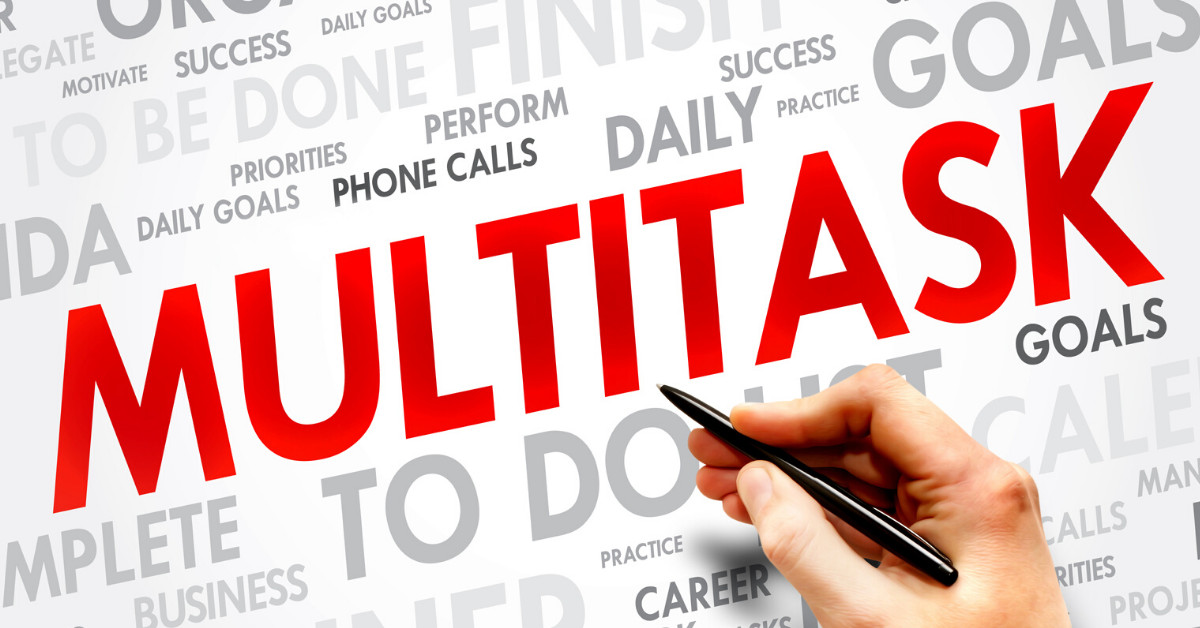Ways Multitasking May Be Counter-productive
Most of us consider multitasking, a desirable skill to possess for getting multiple things done simultaneously. We often result to multitasking when we have an excessive number of tasks to get through. Granted that multitasking can be beneficial in some cases, multitasking can also work against us by turning our focus away from responsibilities requiring our full concentration, due to the complexities of each task at hand.
It turns out that multitasking is a myth.
According to. Neuroscience News, multitasking can reduce productivity by as much as 40 %. The brain is not capable of intently focussing on more than one thing at a time, as it does not perform tasks simultaneously. It performs them in sequence, one thing at a time. Because of the way our brain functions, attempting to multitask with any activities requiring our full attention may result poorly.
When Multitasking, the brain isn’t processing or concentrating for understanding.

According to neuroscience, the brain works more efficiently when we focus on a solitary task for an extended period of time.
Multitasking May Reduce the Quality of Our Work
What an amazing feeling of accomplishment when completing tasks on our To-Do list. Very liberating! However, when most of us are multitasking, our primary focus may be honed in on producing quantity not quality.
According to the AMA, ‘Research suggests that the very word “multi-task” is a misnomer: “There’s substantial literature on how the brain handles multitasking. And basically, it doesn’t…what’s really going on is a rapid toggling among tasks rather than simultaneous processing,” explains Jordan Grafman, chief of the cognitive neuroscience section at the National Institute of Neurological Disorders and Stroke (Wallis 2006).’
Say no, get organised, work smarter

Choose to work smarter not harder to reduce stress and avoid burnout. This means practising self-care in the workplace by becoming organised, keeping a calendar or a to-do list, not taking on more work than we can possibly fit into our schedule, being able to ask for help and we need to exercise the freedom to delegate certain tasks to others when necessary.
Sandra Ciminelli
Cred. Dip. Couns. (Christian)
Sources:
- Is Multitasking Counter-productive? – Amanet
- Multitasking Brain Overload – Neuroscience News




Have you thought about becoming a qualified counsellor? It’s a great opportunity to learn how you can extend God's love and grace to the hurting out in the community.
For those who would like to enrol in aifc’s accredited Christian counselling courses we have two intakes per year for courses commencing around the following months:
Enrolment Season - opens approximately 2 months prior to our courses commencing. Enrol online here during our enrolment season.
We also offer two modes of study:
A Master of Counselling course was introduced in 2018.